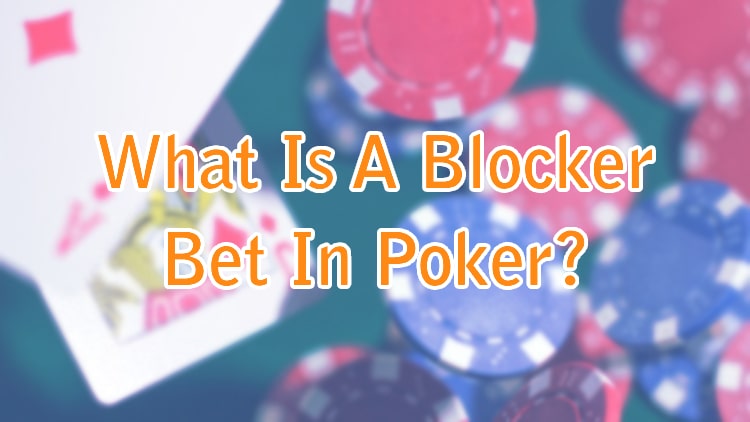
Ever wondered how you can play a poker game without putting too much of your chips at risk? Enter the blocker bet, a strategic move that might just be what you need. This smart bet can potentially give you the edge, allowing you to gather information about your opponents while managing the size of the pot.
In a game where every move counts, understanding the nuances of a blocker bet could be a game-changer. But remember, poker is unpredictable, and while strategies can improve play, outcomes are never certain. Let’s dive into the world of poker and uncover the role of a blocker bet.
What Does Blocking & Unblocking Do In Poker?
In the world of poker, blocking and unblocking are two sides of the same coin, each with its own strategy and purpose. Let’s break it down.
Blocking
If you place a blocker bet, you're essentially putting up a small wager to try and 'block' your opponent from making a large bet. This can be particularly handy if you're not holding the strongest hand, but want to see the next card. It’s a bit like putting up a cautious hand, signalling that you’re still in the game, but without risking a lot. This move can also prompt your opponent to reveal something about their hand based on how they respond.
Unblocking
On the flip side, 'unblocking' isn’t a specific bet, but a concept related to the cards that are still in play. If you have none of the cards that would complete your opponent's potential winning hand, it means your hand is 'unblocked', and those winning cards could still come up. This means you might reconsider how aggressive you want to be with your betting.
Understanding when to block and when to worry about unblocking hinges on a careful reading of the table and your opponents. It requires a balance of caution and boldness, with a keen sense of timing. Remember, poker is a game of continual learning and adapting. Practising these strategies can help, but the outcome is never a given.
What Is The Advantage Of Blocking In Poker?
Blocking in poker can be a subtle yet effective tactic, offering you a few potential advantages.
Firstly, by placing a blocker bet, you can keep the pot manageable. It’s a way of saying you're still in the game, but without inviting a betting war. This may be particularly useful if you're holding a moderate hand that could improve with the next card.
Another possible benefit is the invaluable information it can reveal about your opponents' hands. How they respond to your blocker bet can give you clues about the strength of their hand. If they simply call, or fold, you might deduce they’re not overly confident. However, if they raise aggressively, it might signal a strong hand, guiding your next move.
Lastly, it can potentially deter opponents from bluffing. With a bet already on the table, it raises the cost for an opponent to try and bluff their way through the round.
In essence, a well-timed blocker bet can potentially give you an advantage, allowing you to navigate the game with more information. Remember, though, that like all strategies in poker, its success can vary depending on how it’s employed and the context of the game.
Is Blocking In Poker Good?
In the vast landscape of poker tactics, blocking is a tool that, if used wisely, has its merits. It’s about threading the needle between aggression and caution. However, it's crucial to remember that there’s no one-size-fits-all strategy in poker.
Understanding the context and timing can make a blocker bet a useful component of your poker arsenal. Refining this skill comes with experience and observation, enabling you to adapt to the fluid dynamics of the game.
In conclusion, while the effectiveness of a blocker bet can vary, integrating it into your strategy might just give you that extra insight you need at the table. Remember, poker is not just about the cards you're dealt, but how you play them.
